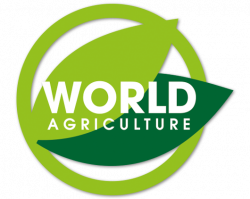The ‘Organics’ Debate

We make no apology for publishing more articles and an editorial on the general subject of ‘organic’ farming in this issue of World Agriculture. The subject gives rise to extensive and often polarised discussion, especially in Europe and the developed world generally.
The reasons for the popularity of produce from organic systems often derive from the belief that they are better for the environment, or have health or other personal benefits.
This is often a genuine response to real concerns about the impacts of agricul- ture on environmental degradation, and/or a belief that synthetic pesticides and fertilizers have adverse effects on health.
Obviously, there is nothing intrinsically wrong with such views; they represent a caring consideration for the planet or a concern for one’s own health. They may also be related to the luxury of having enough to eat and thus the ability to select products which may be relatively more expensive at point of sale.
Nevertheless, it is extremely unlikely that valid generalisations, of the form “organic/conventional farming is better, worse, healthier, safer or better for the ‘environment’’’, can be formulated.
This conclusion is drawn from the fact of the wide range of agricultural products and the great variety of soil, land and weather conditions under which they are grown.
Some generalisations related to economic issues and resource use (e.g. energy and land use or manpower) can, however, be made, provided that they are related to specified products or processes.
There is therefore, no such thing as an ‘organic’ system or a ‘conventional’ system, since there are many different ways of producing the same product. There are, however, characteristically different approaches to farming.
The main reason for the current antagonism between approaches is that, if one ‘side’ attacks the other, those attacked (particularly if the attack is felt to be unfair or inaccurate) feel obliged to respond.
This is especially so if the attacks are made publicly and designed to influence the public and, even more so, if there are potentially adverse economic consequences.
The world faces many problems and challenges, most of which derive from an ever increasing human population and the implicit pressure on resources and the environment.
There is an overwhelming imperative to develop agricultural systems which reduce overall greenhouse gas emissions and consistently increase output per unit area. These imperatives must guide decision-making about approaches for sustainable systems.
There is a view, to which the WA editorial board subscribes, that the problem is too serious for effort to be wasted arguing about the pros and cons of beliefs.
We support a more positive debate which involves identifying features of approaches to farming that can usefully be applied to alternative systems used in comparable conditions.
By integrating these features, the ‘organic’ and ‘conventional’ systems become complementary, with each learning and benefiting from the research, technology and experiences of the other.
Simple examples might be:
The organic sector could identify methods of reducing use of herbi- cides/pesticides that could be used in conventional systems.
Conventional practitioners could identify methods/technology that would raise productivity or reduce costs in organic systems.
Developing ways in which the intrinsic heterogeneity of organic sys- tems improve farmland biodiversity that can be applicable to conventional systems.
In this way a clear distinction can be made between differences in view, approach or practice, which are often emotional, unproven (or even unprovable) assertions, to the identification of differences based on accepted facts.
Determining the basis of any approach to farming on what might be seen as an arbitrary set of decisions to use or not use a particular approach or technology is not necessarily helpful to the constructive debate and decision making process needed to secure adequate long term agricultural production.
Whilst valuable lessons may be learned from practice an assertion about a method of production is of little value without reliable evidence for its adoption. Factual evidence for improved methods can be established only by the adoption of the scientific method.
The application of an improved method should be limited to the range of conditions under which it has been established. This limitation involves technical and economic decisions of great variety, as no two regions, farms or even fields are identical and the economy of production in each of these is continually changing.
Nevertheless, so long as the evidence is reliable it can be applied more widely and over time. For example, if one production method is thought to increase the output of a product per ha, so releasing other areas for wildlife, improving bio-diversity, but is anticipated to cause a greater rate of nitrous oxide production in the cultivated area, how is this to be assessed?
If there is reliable evidence about what is likely to occur with the new approach in each of these areas, then a rational decision can be taken. The procedures adopted can vary over time, depending on economic and other circumstances, but those procedures should always be based upon the factual evidence previously established.
Download pdf
